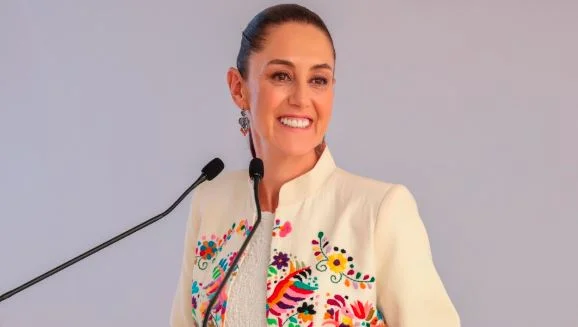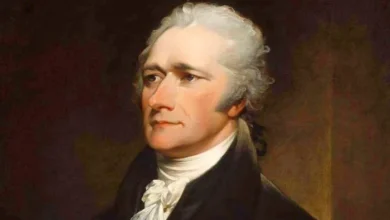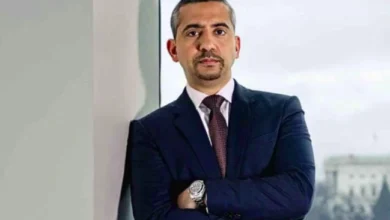
Claudia Sheinbaum Ethnicity and Parents Nationality
Claudia Sheinbaum, a prominent figure in Mexican politics, is recognized as a trailblazer in her country’s political landscape. Born on June 24, 1962, in Mexico City, she has broken barriers as the first woman to serve as Head of Government of Mexico City. Beyond her professional accomplishments, Sheinbaum’s heritage and family background reflect a rich tapestry of cultural diversity. Her ethnicity and her parents’ nationalities are vital elements of her story, intertwining narratives of migration, cultural preservation, and global influences that have shaped her identity and political outlook.
Claudia Sheinbaum Ethnicity and Cultural Background
| Category | Politicians |
|---|---|
| Full Name | Claudia Sheinbaum Pardo. |
| Birthdate | June 24, 1962. |
| Birthplace | Mexico City, Mexico. |
| Ethnicity | Lithuania and Bulgaria descent. |
| Father Ethnicity | Lithuania descent. |
| Mother Ethnicity | Bulgaria descent. |
Claudia Sheinbaum’s ethnicity is deeply rooted in her Ashkenazi Jewish heritage, a cultural lineage that ties her to a historical narrative of Jewish diaspora and resilience. Her family’s Jewish ancestry originates from Eastern Europe, with her grandparents emigrating from Lithuania and Bulgaria. These migrations, driven by socio-political upheavals and the search for better opportunities, represent a broader story of survival and adaptability common among Jewish communities worldwide. This heritage has been a cornerstone of Sheinbaum’s personal and cultural identity, enriching her perspective on societal challenges and solutions.
Claudia Sheinbaum Influence of Ancestry on Values
The values inherent in her Jewish upbringing—justice, inclusion, and human rights—have profoundly shaped Sheinbaum’s approach to leadership and governance. The resilience of her ancestors, who overcame adversity and sought to build better lives, resonates in her commitment to fostering equity and social cohesion in modern-day Mexico. These values are not just personal convictions but guiding principles that inform her policies and interactions on both a local and national level.
Claudia Sheinbaum Connection to Mexico Jewish Community
As a proud member of Mexico’s Jewish community, Sheinbaum has consistently highlighted the importance of cultural diversity in fostering a harmonious society. Her participation in cultural and communal events underscores her dedication to preserving Jewish traditions while also integrating them into Mexico’s broader multicultural framework. Sheinbaum’s story reflects the seamless blending of her Ashkenazi Jewish roots with her Mexican identity, symbolizing the nation’s capacity to embrace diverse heritages.
Claudia Sheinbaum Advocacy for Multiculturalism
Sheinbaum’s Jewish identity is intricately woven into her advocacy for minority rights and her recognition of Mexico’s pluralistic society. Her emphasis on multiculturalism is not merely symbolic; it is reflected in her policies that aim to support minority communities and ensure their inclusion in all aspects of public life. While her political focus often addresses broader national concerns, she has openly acknowledged the formative role her heritage has played in shaping her worldview.
Claudia Sheinbaum Heritage as a Foundation for Leadership
Her cultural background serves as a foundation for her leadership style, inspiring her to champion policies that promote tolerance, inclusivity, and unity. By embracing her Ashkenazi Jewish heritage, Sheinbaum exemplifies how cultural identity can be a source of strength and guidance in navigating the complexities of political and social leadership.
Claudia Sheinbaum Siblings
Claudia Sheinbaum, the esteemed Mexican politician, comes from a family that values education, scientific inquiry, and cultural heritage. While much of the spotlight often focuses on Claudia’s remarkable achievements, her siblings also play an important role in her life and share a legacy of intellectual and professional accomplishments.
Claudia Sheinbaum Brother Alfredo Sheinbaum
Claudia Sheinbaum has a brother, Alfredo Sheinbaum, who, like her, grew up in an intellectually stimulating environment fostered by their parents. Alfredo pursued a career outside the political arena, focusing on areas that complement the family’s inclination toward science and academia. While not as publicly prominent as his sister, Alfredo is recognized for his expertise and dedication to his field.
The siblings share a close bond, deeply rooted in the values instilled by their parents, Carlos Sheinbaum and Annie Pardo. Their upbringing emphasized education, social responsibility, and a strong sense of justice—principles that have guided both Claudia and Alfredo in their respective paths.
Claudia Sheinbaum Family Influence
Growing up in a household with a chemical engineer father and a biologist mother provided both siblings with an early appreciation for science, analytical thinking, and problem-solving. This foundation undoubtedly influenced Claudia’s approach to governance and Alfredo’s professional endeavors. The Sheinbaum siblings also share a deep connection to their Jewish heritage, which is a source of pride and cultural grounding for the family.
Claudia Sheinbaum Privacy and Public Life
Unlike Claudia, whose political career has brought her into the public eye, Alfredo has maintained a more private life. This dynamic underscores the balance within the Sheinbaum family, where individual paths are respected and celebrated. Claudia has spoken warmly about her family, highlighting the supportive relationships that have been a cornerstone of her success.
Claudia Sheinbaum Professional Career
Sheinbaum’s professional career is a testament to her dedication to science, public policy, and social justice. A woman of many talents, she has seamlessly transitioned from academia to politics, leveraging her technical expertise and leadership skills to make a lasting impact on Mexico’s development.
Claudia Sheinbaum Academic and Scientific Contributions
Claudia Sheinbaum began her professional journey in academia, earning a degree in Physics from the National Autonomous University of Mexico (UNAM), followed by a Ph.D. in Energy Engineering. Her doctoral research focused on renewable energy and sustainable development, areas that would later influence her policy initiatives.
Sheinbaum gained recognition as a respected academic and researcher, with numerous publications on energy efficiency, environmental sustainability, and climate change. She contributed to the Intergovernmental Panel on Climate Change (IPCC), an organization that won the Nobel Peace Prize in 2007 for its efforts to raise awareness about climate change. This work cemented her reputation as a leading expert in environmental science and underscored her commitment to tackling global environmental challenges.
Claudia Sheinbaum Entry into Public Service
Sheinbaum’s transition into public service began in the early 2000s when she was appointed as Secretary of the Environment for Mexico City during Andrés Manuel López Obrador’s tenure as Head of Government. In this role, she spearheaded several innovative projects aimed at reducing the city’s carbon footprint and improving public transportation.
One of her most notable achievements was the introduction of the Metrobús, a bus rapid transit system that has become a cornerstone of Mexico City’s sustainable urban mobility efforts. She also promoted initiatives to increase the use of renewable energy in government buildings and reduce greenhouse gas emissions across the city.
Her work as Secretary of the Environment demonstrated her ability to bridge the gap between science and policy, earning her a reputation as a pragmatic and forward-thinking leader.
Claudia Sheinbaum Political Ascension
In 2015, Sheinbaum was elected as the Mayor of Tlalpan, one of Mexico City’s boroughs. During her tenure, she focused on improving public safety, education, and infrastructure. Her leadership during the 2017 earthquake, which heavily impacted Tlalpan, showcased her crisis management skills and dedication to her constituents.
In 2018, Claudia Sheinbaum achieved a historic milestone by becoming the first woman elected as the Head of Government of Mexico City. As a member of the National Regeneration Movement (MORENA), she implemented progressive policies aimed at reducing inequality, improving public services, and combating climate change.
Key initiatives under her leadership include the expansion of social programs, investment in renewable energy projects, and the enhancement of public transportation systems. She has also prioritized gender equality and women’s rights, launching programs to support women’s safety and economic empowerment.
Claudia Sheinbaum Legacy and Future Prospects
Claudia Sheinbaum’s professional career is defined by her unwavering commitment to science, sustainability, and social equity. Her ability to apply technical expertise to governance has set her apart as a leader who values evidence-based policymaking.
As she continues to shape the political landscape of Mexico, Sheinbaum remains a symbol of progress and innovation. Her achievements in both academia and politics reflect a career dedicated to building a more inclusive, sustainable, and prosperous society.
Claudia Sheinbaum Parents Nationality
Claudia Sheinbaum’s parents, Carlos Sheinbaum and Annie Pardo, played pivotal roles in shaping her intellectual foundation and values. Her father, Carlos, traces his ancestry to Lithuania, while her mother, Annie, has roots in Bulgaria. Both parents migrated to Mexico, bringing with them not only their cultural heritage but also their dedication to professional excellence. They moved to Mexico to build a new life in a country that offered opportunities for growth and stability amidst the challenges Jewish families faced in mid-20th-century Europe. In doing so, they contributed to a broader narrative of immigrant resilience. Their journey, therefore, symbolizes the determination and perseverance of countless immigrant families who have enriched Mexico’s multicultural identity.
Carlos Sheinbaum, a chemical engineer, made significant contributions to Mexico’s scientific advancements, particularly in the field of engineering. His unwavering dedication to innovation and problem-solving became a cornerstone of the family’s ethos, profoundly influencing Claudia’s analytical approach to challenges. Meanwhile, Annie Pardo, a distinguished biologist and professor at the National Autonomous University of Mexico (UNAM), left an indelible mark on academia. Her groundbreaking research and commitment to education not only advanced scientific understanding but also inspired Claudia to deeply value rigorous intellectual inquiry. Together, Carlos and Annie cultivated an environment that championed curiosity, hard work, and cultural pride. As a result, they laid the groundwork for Claudia’s subsequent achievements as both a scientist and political leader.
Conclusion
Claudia Sheinbaum’s ethnicity and her parents’ nationalities are not just aspects of her personal identity; they are foundational elements that have profoundly influenced her worldview and leadership style. Her Ashkenazi Jewish heritage, rooted in the migration stories of her grandparents from Eastern Europe, reflects a legacy of resilience and adaptability. This multicultural lineage has instilled in her an understanding of the importance of embracing diversity, a value that resonates deeply in her political career. In this way, Sheinbaum’s background shapes her advocacy for inclusivity and equity, drawing directly from her own family’s experience of finding opportunity and acceptance in Mexico. Indeed, her story highlights how personal history can inspire broader societal impact, serving as a bridge between different cultures and communities.
Furthermore, Sheinbaum’s acknowledgment of her heritage underscores the vital role immigrant families play in shaping the identity and progress of their adopted nations. By celebrating her roots, she not only honors her ancestry but also champions the contributions of multiculturalism to Mexico’s social fabric. Consequently, her success demonstrates how diverse backgrounds can enrich national narratives, fostering a society that thrives on inclusivity. As she continues to ascend in Mexican politics, Claudia Sheinbaum serves as a testament to the strength that comes from embracing one’s heritage while working toward a unified, equitable future for all.



